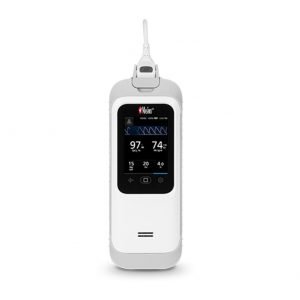What is The Pediatric Clip sensor?
The Pediatric Clip sensor work on a Non-invasive method similarly to a pulse oximeter for measuring the fraction of functional hemoglobin in arterial blood that saturates with oxygen.
What is SpO2?
The judgment of the affinity of red blood cells to oxygen and also the readings (arterial oxygen saturation), reported by the connected oximeters through an oxygen saturation measurement called peripheral capillary oxygen saturation known as SpO2.
Working of the SpO2 sensors
The SpO2 sensors contain light-emitting diodes that project infrared light through the tissue. Further some of this light passes through the application site and a light-sensitive detector opposite the light source receives it.
Diagnosis of respiratory ailments using The pediatric clip sensor
Accurate measurement of arterial oxygen saturation provides a chance to monitor and diagnose conditions such as acute lung injury, acute respiratory distress syndrome, or sleep-related breathing disorders.
Hypoxia
Oxygen saturation varies from 0-100% and in healthy adults can range from 94-100%. When numbers below this may indicate Hypoxia which is an absence of enough oxygen in the tissues to sustain bodily functions (arterial oxygen saturation value below 90% causes hypoxia).
Screening of Covid-19 infections using SpO2 readings
Alternatively, SpO2 readings are an effective tool in screening out covid-19 cases. Timely medical evaluation warranted when the readings drop below the threshold of 90-92%.
Pediatric Clip Salient Features
This oxygen monitor is made up of a soft, semi-rigid silicon body and does not incorporate latex, preventing any allergic reactions by the patient’s skin upon contact.
Despite using infrared radiation, the device does not reach excessive temperatures.
Proper Placement Guidelines
The clip sits securely upon any finger of the patient (except the thumb). Also the preferred site of application for newborns immediately after birth is the right hand since the SpO2 values on the right hand (pre-ductal) are more representative for brain oxygenation.
Application site
Application of the sensor influences the readings. So it must be done with consideration to the weight of the patient, type of sensor suitable for the patient’s medical condition, and an appropriate application site.
Choosing the correct application site
An optimal application site is chosen with attention to:
- Good perfusion
- Low potential for generating motion artifact
- Comfort to the patient
- Ease of application





Reviews
There are no reviews yet.